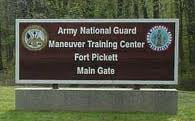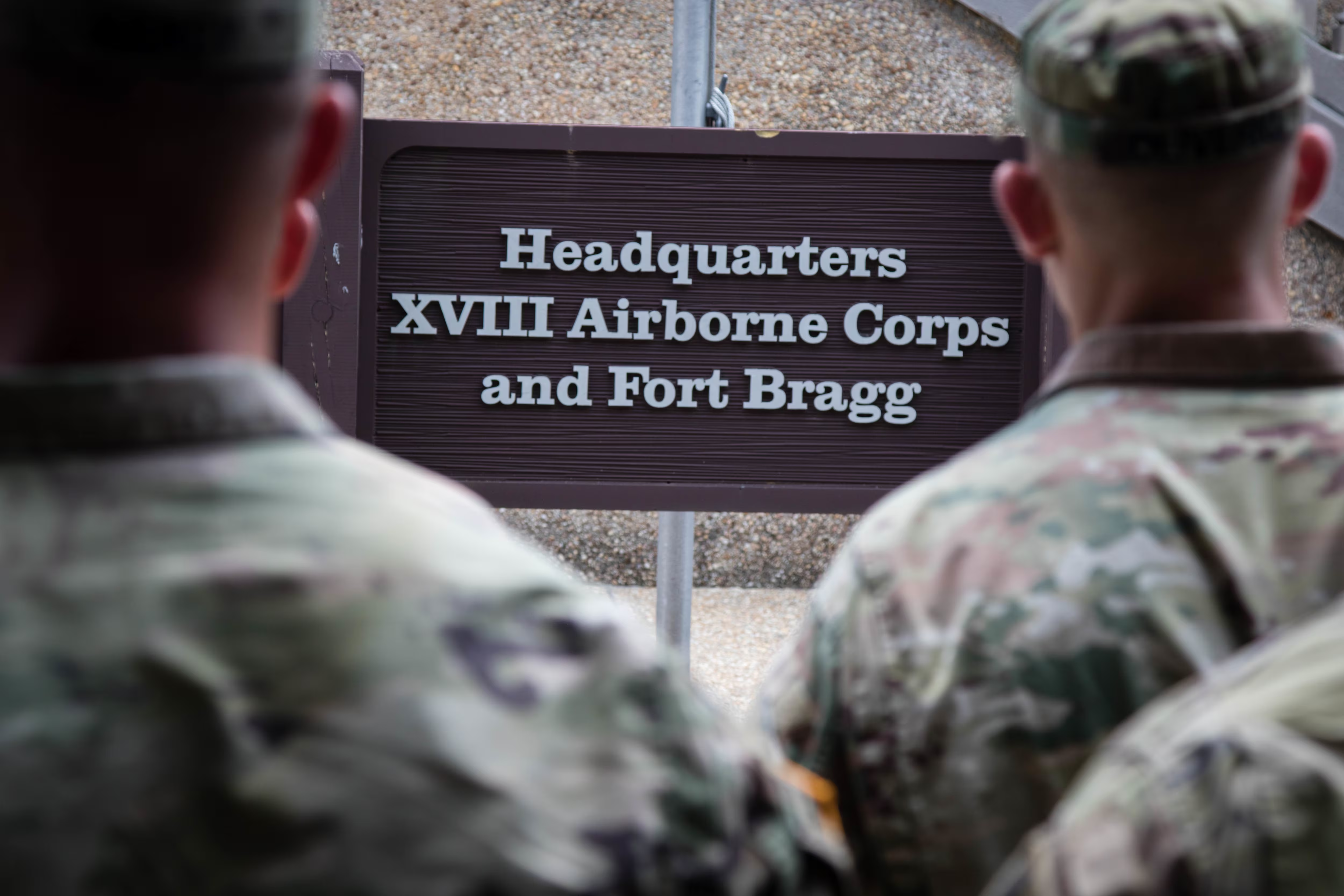A Pentagon commission on Tuesday offered its recommendations for renaming nine Army bases that currently have Confederate figures as their namesakes. The suggestions would rename locations after African American soldiers and women soldiers for the first time.
Officials with the Defense Department naming commission said the changes were designed to guarantee that prominent military locations have names “that evoke confidence in all who serve.” The panel will issue its final report to Congress later this fall, and the defense secretary will be charged with implementing the changes by January 2024.
“During many conversations within the commission, with installation personnel, civic leaders, and communities, we sought to find names that would be inspirational to the soldiers and civilians who serve on our Army posts, and to the communities who support them,” retired Adm. Michelle Howard, chairwoman of the commission, said in a statement.
“We realized quickly that we had more heroes than we did bases to name. And we were overwhelmed with the greatness of the American soldier — from those who gave their entire adult lives to the Army, to those who sacrificed themselves in valorous acts.”
RELATED

For the last 16 months, the commission has been collecting recommendations from the public and groups connected with each of the bases on what the next steps should be.
The final list is:
- Fort Benning, Ga. — recommended to be renamed Fort Moore, for Lt. Gen. Hal Moore and his wife, Julia. Hal Moore received the Distinguished Service Cross for heroism in the Vietnam War. Julia Moore was an advocate for military families.
- Fort Bragg, N.C. — recommended to be renamed Fort Liberty, after the value of liberty.
- Fort Gordon, Ga. — recommended to be renamed Fort Eisenhower, after President Dwight Eisenhower, who also served as general of the Army.
- Fort A.P. Hill, Va. — recommended to be renamed Fort Walker, after Dr. Mary Walker, the Army’s first female surgeon.
- Fort Hood, Tx. — recommended to be renamed Fort Cavazos, after Gen. Richard Cavazos, who received the Distinguished Service Cross for heroism in the Vietnam War
- Fort Lee, Va. — recommended to be renamed Fort Gregg-Adams, after Lt. Gen. Arthur Gregg and Lt. Col. Charity Adams. Gregg was a key figure in the integration of black soldiers into the Army. Adams was one of the highest ranking female soldiers in World War II.
- Fort Pickett, Va. — recommended to be renamed Fort Barfoot, after Tech. Sgt. Van T. Barfoot, a Medal of Honor recipient.
- Fort Polk, La. — recommended to be renamed Fort Johnson, after Sgt. William Henry Johnson, a Medal of Honor recipient.
- Fort Rucker, Ala. — recommended to be renamed Fort Novosel after Chief Warrant Officer 4 Michael J. Novosel Sr., a Medal of Honor recipient.
The renaming process has proved controversial on Capitol Hill, with numerous Republican lawmakers opposing the effort. Former President Donald Trump publicly opposed the idea during his time in office, saying that changing the names ignored the history of the military sites and dishonored the troops that served at each.
But enough Republican lawmakers sided with Democrats to advance the measure forcing the name changes
The new name for Fort Bragg could be the most controversial of the recommendations, given that it’s the only one not named for a military hero.
Commissioners acknowledged that “Liberty” had not been one of the 87 finalists previously announced, either. But in between their first visit to Fort Bragg last year and a final visit this spring, they said that community leaders had coalesced around the name and powerfully recommended it to them.
Commission member Jerry Buchanan said that community members there were concerned about naming for an individual. “Maybe this individual [is] 100% acceptable right now, [but they] might not be 20 years from now for whatever reason.”
The term “liberty” has featured prominently in the history and mottos of the installation’s units, too.
The 82nd Airborne Division’s World War II route from Normandy, France, east towards Germany forms part of the commemorative “Liberty Road” featuring painted kilometer markers with a prominent image of a torch.
And the Latin motto of the Army’s Special Forces branch — De Oppresso Liber — is traditionally translated to mean “to liberate the oppressed.”
In a statement, House Armed Services Committee Chairman Adam Smith, D-Wash., praised the recommendations as “a first step in addressing Confederate symbolism in the U.S. military.”
“This process has created a new opportunity to foster a more inclusive environment for our service members by remembering and acknowledging our country’s history while honoring the valor and sacrifice of our service members and their families,” he said.
Davis Winkie covers the Army for Military Times. He studied history at Vanderbilt and UNC-Chapel Hill, and served five years in the Army Guard. His investigations earned the Society of Professional Journalists' 2023 Sunshine Award and consecutive Military Reporters and Editors honors, among others. Davis was also a 2022 Livingston Awards finalist.
Leo covers Congress, Veterans Affairs and the White House for Military Times. He has covered Washington, D.C. since 2004, focusing on military personnel and veterans policies. His work has earned numerous honors, including a 2009 Polk award, a 2010 National Headliner Award, the IAVA Leadership in Journalism award and the VFW News Media award.





